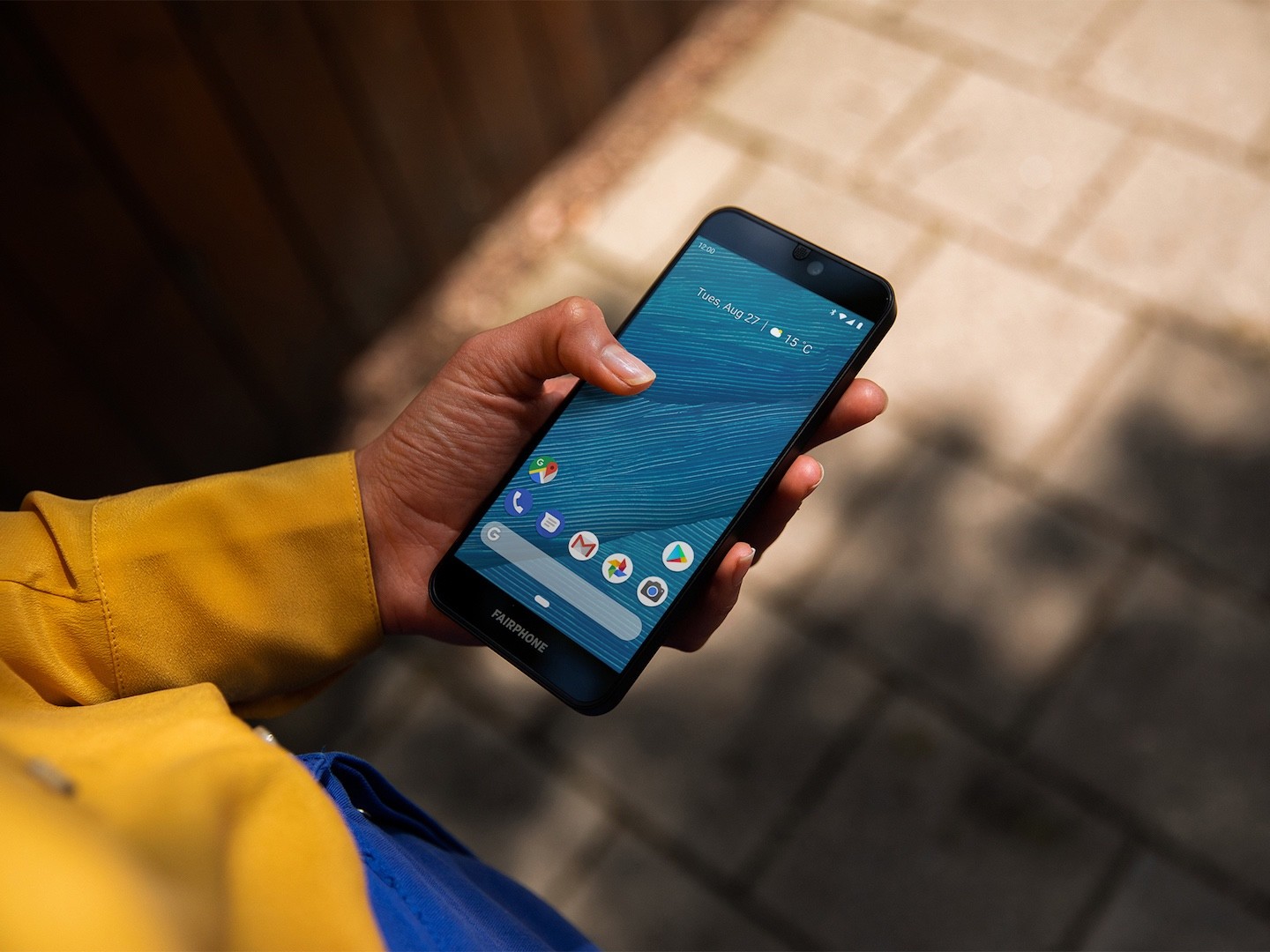Fairphone, a social enterprise bringing sustainable materials and ethical production into the consumer electronics market, is back with a new device for Europe’s ethically-minded smartphone buyers.
We first saw the original Fairphone debut in December 2013, with the follow-up Fairphone 2 launched in 2015. The Fairphone 2 was the first ever modular smartphone available on the market and designed to be easily repaired by the user. It completely sold out back earlier in 2019, making the Fairphone 3 (FP3) a much desired device. The Dutch company’s latest handset goes on pre-sale from today in Europe via the Fairphone website with a suggested retail price of €450 and will ship to buyers on September 3rd.
The latest Fairphone sticks with the lessons learned from previous models: it’s a modular device designed for easy repairability, with a long battery life, but this time with a slimmer, sleeker look. It comes complete with a microSD card and a removable battery and is made up of six components that are designed to be easy to remove, repair and replace. The phone even ships with a screwdriver that you can use to take your phone apart. In a competitive smartphone market where devices tend to be designed with in-built obsolescence, Fairphone is one of very few alternatives that use circular economy approaches and offer tech that’s designed for repairability and longevity.
In terms of materials, the new device is made with responsibly sourced and “conflict-free” tin and tungsten, recycled copper and plastics, along with Fairtrade gold. This is the first time Fairtrade gold has been used in the supply chain in electronics manufacturing. The FP3 is also seeking better sourcing of cobalt, a key mineral and a notoriously difficult mineral to source ethically.
Fairphone 3 will also be shipped in reusable packaging, with the phone coming with its own “protective bumper” for extra protection from “everyday knocks and bumps,” according to the company. Fairphone has also collaborated with the final assembly partner Arima, in Taiwan, in innovative ways, with the company paying a bonus to workers to improve wages in the factory.
Fairphone also offers a recycling program to combat e-waste, even rewarding buyers for using the program to return and trade in previous (Fair)phones (offering €20 for any phone and €40 for a Fairphone or Fairphone 2) and supports collection programs in countries like Ghana.
How is the Fairphone 3 different to previous models?
Some of the RESET staff bought the original Fairphone, supporting the first edition. And, there is a saying that covers a lot of consumer products, from automotive to electronics: never buy the first edition. It’s age-old wisdom – let the manufacturer work out the bugs, and buy the next model if you like it.
The original Fairphone was by no means a terrible device, but it was a first edition. While at least one original Fairphone in the RESET office still lives, the original used a MediaTek processor. While MediaTek are used by many manufacturers, these tend to be short-lived low-end devices. Fairphone’s objective was to support its first phone for many years; struggles with MediaTek made it hard to release Android software updates and eventually support ended earlier than the original timeframe.
The Fairphone 2 was later released with a chipset from Qualcomm, the industry leader for smartphone software-on-a-chip (SoC) packages, a more appropriate offering for Fairphone’s ongoing support objectives. As proof, the Fairphone 2 continues to be supported today.
So, should you buy one? One key principle of the Fairphone brand is that: “The most sustainable phone is the one you already own”. So while sales are obviously important to the company, you should only buy a Fairphone 3 if you truly need an upgrade and you understand that it’s more like a Jeep than a Ferrari – not a sportscar smartphone that looks good for a year before it starts to age rapidly, but a utility device that’s built to last.






